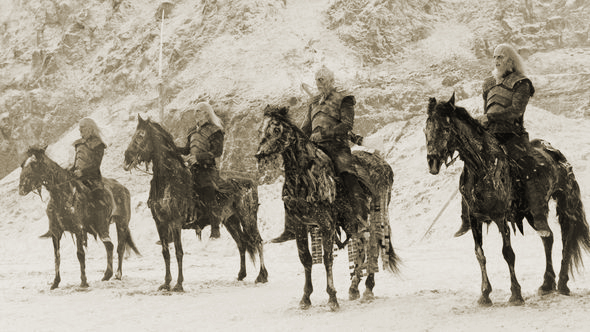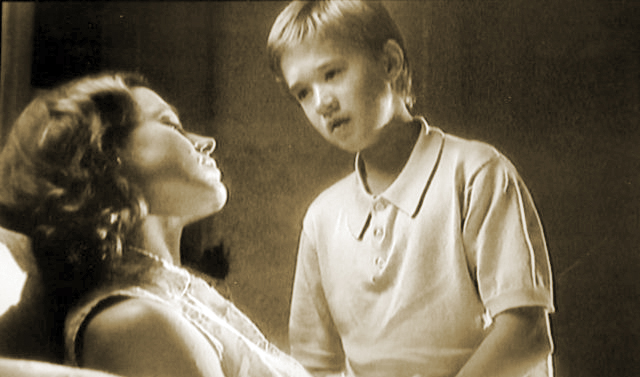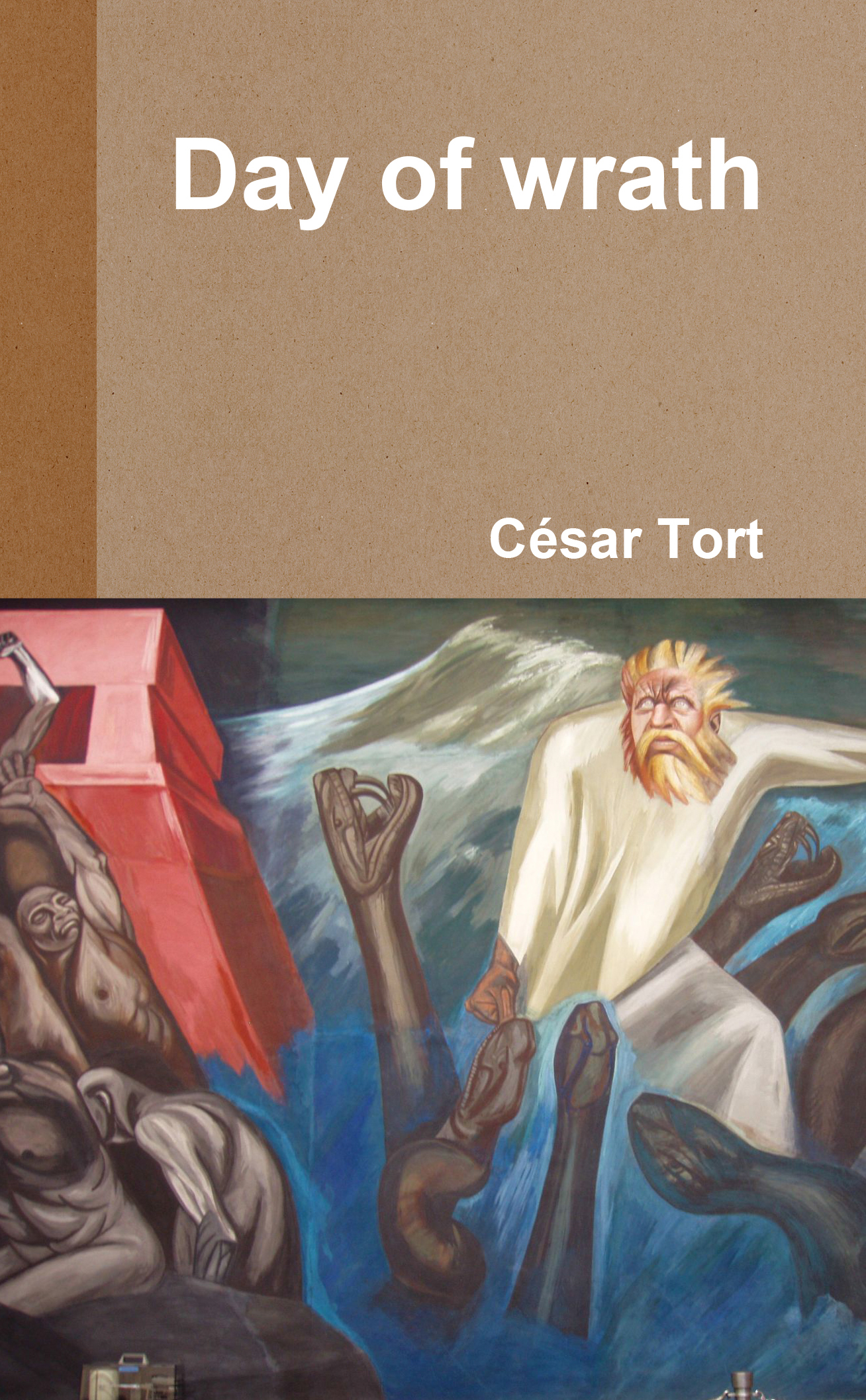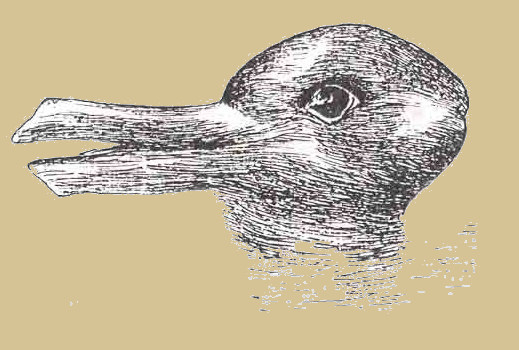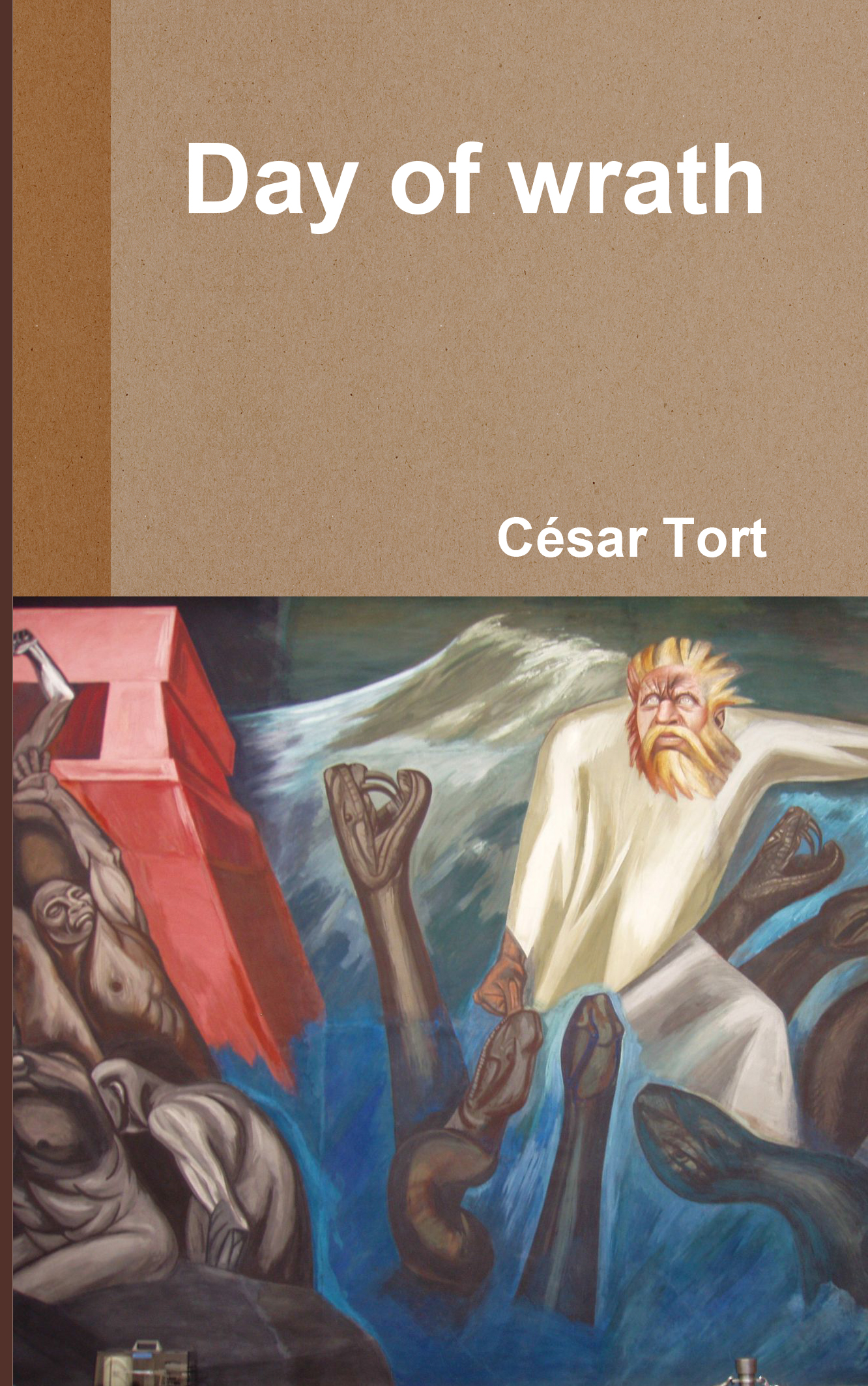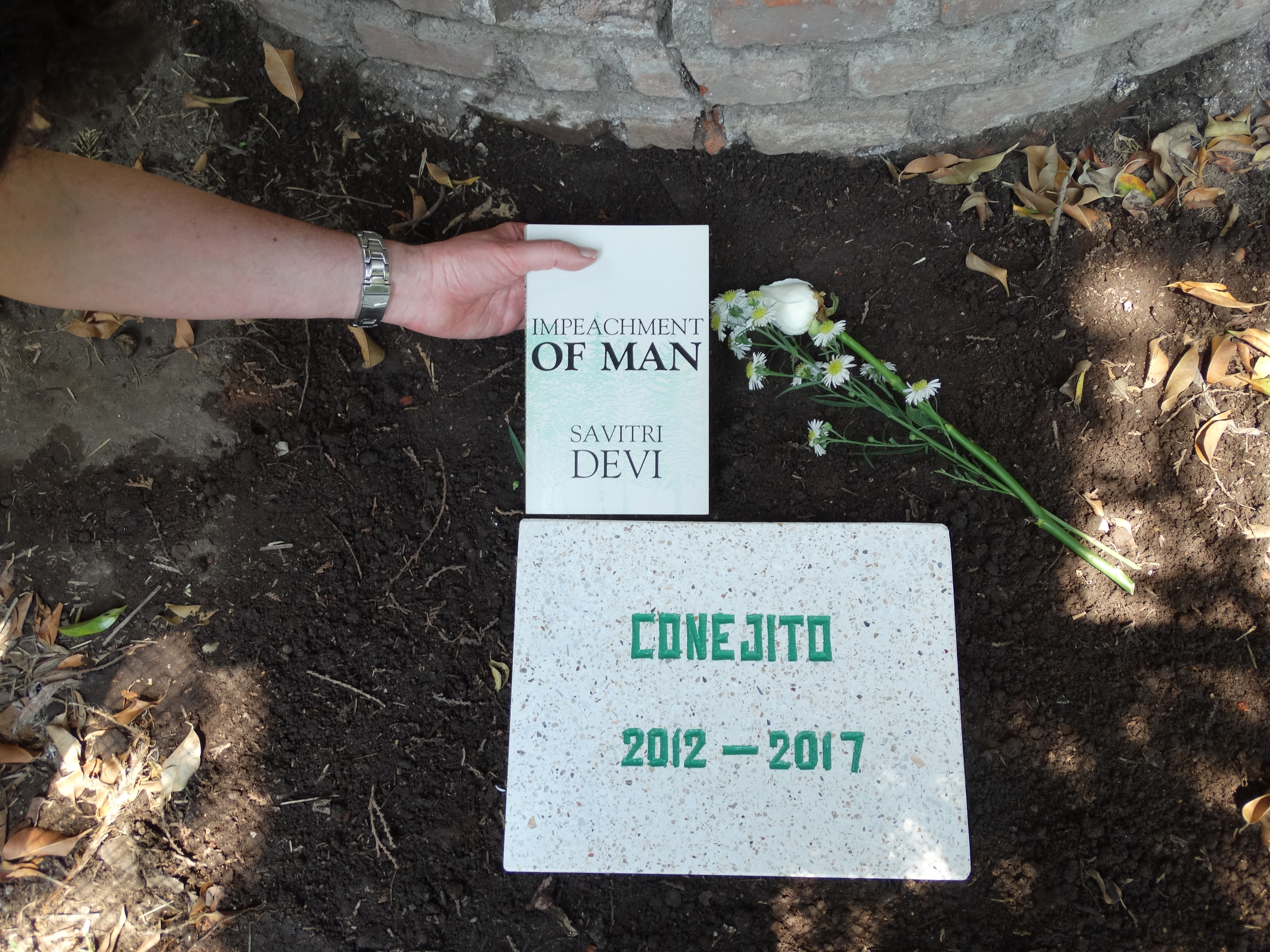‘We are not the Alt Right—AR was a racialist, atheist, post-American, revolutionary, and transnational movement. America First is a traditionalist, Christian, conservative, reformist, American Nationalist movement’.
—Nick Fuentes
What I translated in the other post today about the extreme puritanical behaviour among the ancient Vandals reaffirms what was said in my previous entries of the ignorance in the secular Alt-Right about some elemental history of the Aryan race.
Sexual debauchery in Greece and Rome only happened when those great civilisations were interbreeding with their racial inferiors. Before miscegenation, both Greco-Romans and ancient Germanic tribes, such as the Vandals and those mentioned by Tacitus, were extremely puritanical (sex with inferior races also doomed Ancient Egypt; see below). This is why I feel far more at home with Christians like Nick Fuentes than with those secular racialists whose sexual mores strike me as degenerate. Yesterday, for example, self-styled nihilist Jean-François Gariépy counter-signalled Fuentes about open homosexuality. JFG, of course, is tragically wrong. Aryan civilisation can only be built upon the solid rock of norms that regulate Eros, as the Nazis also understood.
But I am not a Christian. Below I quote a recent Robert Morgan comment on Unz Review about how Christianity could end; the last paragraphs of Evropa Soberana’s article on Egypt, and I offer my opinion about a Stormfront post about Wikipedia and Nick Fuentes’ Christianity. Morgan wrote:
______ 卐 ______
My view is similar to yours, that the empty pews are a sign that the West is turning away from Christianity. Unfortunately for the white race though, while belief in Christ and miracles is fading, the Christian moral vision of universal racial equality is stronger than ever. It has sunk into the culture, and is believed without questioning even by atheists.
In order to save the white race, that belief too would have to be completely extirpated, torn out by the roots. [But] Christianity and the culture it spawned is so useful to the success of empire that it’s hard to envision conditions under which that could happen.
It would be such a radical change in worldview that it would probably take (or even cause?) the collapse of civilization itself, similar to the way it happened when Rome fell. The Christian takeover resulted in the loss of about 99% percent of Latin literature, and 90% of Greek. Temples to pagan gods, some architectural wonders of the ancient world, were looted and pulled down. Priceless statuary and art was vandalized or smashed. Philosophers were tortured and executed, their writings banned and consigned to the flames.
Now imagine something similar happening to all the Christian churches; the Pope dragged out of his lair, tortured and executed; the Vatican a heap of smouldering ruins, its wealth confiscated, any art it contained smashed to pieces; banning and burning all copies of the Bible, and any Christian writings based on or referring to it; killing all the priests.
That’s what it would take to really get rid of Christianity. Then, and only then, could we say that Jesus is as dead as Zeus. Yet so long as the myth of racial equality was useful, I suspect empire would merely adopt another belief system to justify it.
[Editor’s note: ‘The myth of racial equality was useful’. So true. I also have wondered what was the primary cause of white malaise: Jewish subversion in the form of the gospel message or simply Constantine using the most effective weapon of the empire, Judeo-Christianity, to control whites? Remember how he moved the capital from white Rome to an increasing mud place, Byzantium—just what our elites are trying to do today!]
______ 卐 ______
The image below belongs to an unknown man of the V Dynasty. This racial type, neither Semitic nor Negroid, with dark hair and European features and identical to that found in Etruscan or Iberian art, was probably the predominant in the middle classes of ancient Egyptian society.
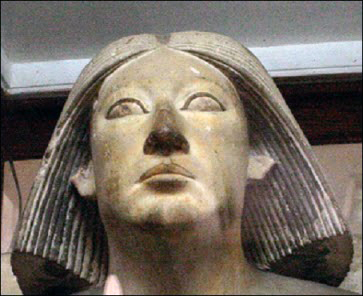 What happened to Egypt? Why did it fall after millennia of splendour? As with all the decline and falls of civilisations the answer lies in biology in general and genetics in particular.
What happened to Egypt? Why did it fall after millennia of splendour? As with all the decline and falls of civilisations the answer lies in biology in general and genetics in particular.
In 1296 BCE the Egyptians conquered Nubia (Southern Negro inhabitants), building a series of forts to protect borders and control insurrections. At one point it was forbidden for any Nubian to cross the border and enter Egypt. Over time, as it is obvious in Egyptian art, black slaves were imported. As always, a low birth rate among the Egyptian nobility, a high birth rate among black slaves and Semites, and the miscegenation produced by the relaxation of the warrior, aristocratic and dominant mentality, cursed Egypt. Finally, in 200 years Egypt went from being a great civilisation to disappearing from the map of civilised nations, at the mercy of stronger foreign powers.
Until 1050 BCE, all the pharaohs had been predominantly white. With the advent of the XXV Dynasty and the ‘black pharaohs’, who had a brief and decadent reign of 75 years, during which they built stunted 20 meter high pyramids (the great pyramid of Cheops, coming from the good times of the true pharaohs, measured 146 meters), the original genetic and biological substrate that had created the civilisation was drowned forever in the dense thicket of dark blood.
In 343 BCE the last native king was deposed by the Persians. From then on, the confused and uprooted ‘Egyptian’ mass passed at the hands of Persians, then to the Greco-Macedonians (here they experienced a new boom, expressed in the emergence of Hellenic blood, the city of Alexandria and the time of Cleopatra, a Macedonian), then Roman, Arab, Turkish, English and, finally, American guardianship under Mubarak, until he was deposed by the rebellions of January 2011. Under the Islamist shadow the future of the country is more uncertain than ever.
______ 卐 ______
I capitalised the words originally written in lowercase on Stormfront:
Wikipedia is owned by a Jewish atheist called Jimmy Wales. He also owns a porn website and that is how he earned his millions yet he downplays this and the majority of public doesn’t know about it. He is a con man.
The whole of Wikipedia is liberal and owned by a liberal crew of elite editors who deny race exists. Just look at any race article to see that. Wiki bans any white nationalist, etc., and they consider any racial view as “fringe” and they heavily edit and suppress any info like that coming into Wikipedia. If you want to see an example of this, then see the white nationalism, race realism article or something like the multiregional hypothesis article where they troll any new edits and are not neutral on the subject.
This explains a lot, but not everything.
As before discovering white nationalism I edited Wikipedia a few years, I eventually realised that the real trick lies in its policy of what they call ‘reliable sources’. In plain English, ‘reliable sources’ are nothing other than what throughout Christendom was called Imprimatur and Nihil obstat: it was only possible to publish with the approval of the Catholic Church.
Exactly the same happens on Wikipedia today, with the difference that now Christianity no longer holds the monopoly of the media but Judaism. For example, you can only reference wiki-articles with publications that come from official journals and publishing houses of the System.
But what’s exactly the problem with that? See my rephrasing of Tom Sunic in my Wikipedia user page: ‘Regarding this encyclopaedia’s policy of “reliable sources”, it has become a customary procedure for the System to relegate free thinkers and would-be heretics and their literary or scientific achievements to marginal outlets, such as self-publishing, that are very similar to those used by dissidents in the ex-Soviet Union’.
Since the controlled media is at the hands of Jewry, the ‘reliable sources’ policy means that every wiki-article dealing with social issues must be, de facto, Kosher approved. That’s why no unbiased article that touches white identity can be fixed on Wikipedia.
Against Fuentes’ religion
Let’s go back to Nick Fuentes. The chasm that separates me from American racialists is so great that the only way to get past it would be, for at least one of them, to read the autobiographical books that I will soon begin to translate.
In short, it is a ‘psychogenic’ chasm. If we compare the life of a racialist like Fuentes with a typical Hollywood comedy, my film would be as heavily existential as what we can see in a Russian film, Andrei Rublev, located when Russia was still in the Middle Ages. If a time machine were possible so that Rublev, who existed in real life, could talk to an American today, it would be seen that my analogy of the two films is spot-on: a psychogenic chasm separates the two minds in an impassable way.
Compared to ‘Rublev’, Fuentes, who has reproduced rap music in his shows, is frivolous as he likes the movies that Hollywood has produced in recent times. He not only ignores European and Russian cinema, but even the old American cinema that I saw as a child. What’s worse, Fuentes has said that the United States ‘is a Christian nation’. In a recent interview with a black Youtuber, another Christian, who asked him if he hated Jews, Fuentes replied that he hated no one but loved everyone, including the Jews.
Like every Christian and neochristian, Fuentes ignores that love is murdering the white race. Moreover, like almost every American racialist Fuentes is ignorant about the history of Christianity: a history of genocidal hatred. Next week I will publish a translation about the complete extermination of two Aryan peoples, the Vandals and the Ostrogoths, perpetrated by a non-Aryan emperor, Justinian, in the 6th century. To my knowledge, neither Fuentes nor any racially conscious Christian knows that black page of the history of their Church. Almost nobody in the movement seems to be concerned with the historical facts, how the Aryan man betrayed their white Gods to worship the god of those who wanted to exterminate them.
Even those who ignore the history of their religion could see that there is a sort of schizophrenia on being Jew-wise and obeying, at the same time, the god of the Jews. Alas, no Christian in the movement wants to heal from such doublethink. In the livestream of the Groypers in Florida, for example, he who surreptitiously recorded that recent event rebelled against the term ‘Judeo-Christian’ expressed by Charlie Kirk. Something as absolutely obvious as that all holy New Testament characters are Jewish doesn’t seem to cause any internal conflict among them.
I don’t think people like Fuentes and company are going to heal themselves from their divided Judeo-Christian minds. Even the author of Siege, so acclaimed by would-be revolutionaries, suffers an acute stage of the disease. This Wednesday, in an interview with Invictus, James Mason’s last words were: ‘…and wait until the return of the Lord. It is very, very near’.
It doesn’t matter that Mason, who has become a Christian identist (see his latest book When We Were All Jews), was brilliant in other parts of the interview. It has to happen what Revilo Oliver said: only a catastrophe that causes suffering for many decades could move the surviving whites to really question their ethno-suicidal paradigm.
For example, despite having defended Richard Spencer last week, even he, a secular racialist, goes on to say that when whites have their empire again, the coloured should be helped outside the ethnostate! I heard that in another interview with Invictus. The interview was recorded after the Spencer scandal I mentioned last Friday. Spencer’s comments on this out-group altruism, which I label neochristian insofar as pre-Christian whites didn’t suffer it, can be listened almost at the end of the interview. Incidentally, ‘Feast’, part IV of Andrei Rublev, depicts beautifully a large group of pre-Christians conducting a lit-torch ritual for midsummer in a magical night: visual art that the likes of Fuentes will never appreciate.

Rublev comforts Boriska, breaking his vow of silence.
Let there be no doubt: American racialists need decades of continuous suffering à la Rublev to give up their little paradigm, as Robert Morgan imagined above. If out-group love is murdering the white race let us transvalue Christian values. Only out-group hatred will save us: paradoxically, the core of ‘the 4 words’ in my final books.
Hopefully, the crash of the dollar and energy devolution will do the Oliver trick…
